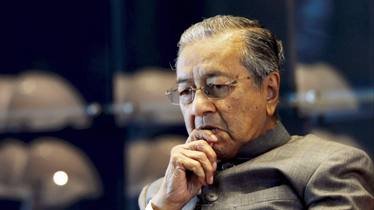Tariq Saeedi
Tun Mahathir is one of those rare politicians who become a legend in their own lifetime. He is what every politician concerned with their legacy wants to be.
In a political career of more than 70 years, he served unprecedented five consecutive terms as the prime minister of Malaysia, from 1981 to 2003 – a period of 23 years.

He is a non-conformist by nature.
In the early years of his premiership in the 1980s, he privatized airlines, utilities, and telecommunications firms at breakneck speed. About 50 privatizations took place every year up to the mid 1990s. This led to significant increase in the revenues of the government and substantial rise in the standard of living of the people.
He focused on infrastructure development in his long-term strategy. The construction of the North-South Expressway, a motorway running the Thai border to Singapore was one of the most notable.
Dr. Mahathir oversaw the establishment of the car manufacturer Proton, a joint venture between the Malaysian government and the Mitsubishi of Japan. In about a decade of its start of production, Proton became the largest car maker in Southeast Asia.
In 1991, he announced Vision 2020, under which Malaysia aspired to become a fully developed country within 30 years. It required a consistent growth of at least 7% in GDP throughout the period. One of the main goals – reduction in poverty – was achieved within a few years. By 1995, less than 9% of the Malaysian population was living in poverty and the in income inequality had been narrowed.
The largest infrastructure project of Mahathir in the 1990s was the Multimedia Super Corridor, an area south of Kuala Lumpur, in the mould of the Silicon Valley, designed to cater for the information technology industry.
The Asian financial crisis, which began in Thailand in 1997, threatened to devastate Malaysia. The Ringgit plummeted and the foreign investments depleted. The main stock exchange index fell by over 75%.
This crisis and the way Mahtahir handled it, inspires the politicians in every developing country.
Contrary to the advice of IMF and his own financial experts to cut down on expenses, raise the interest rates, and introduce belt-tightening measures, Mahathir went in the other direction.
He increased the government spending and fixed Ringgit to the US dollar. The result confounded his international critics and the IMF. Malaysia recovered from the crisis faster than its Southeast Asian neighbours.
During this period, he also curtailed the role and influence of the royalty of Malaysia.
Dr. Tun Mahathir Mohamad, who turned 94 on 10 July 2019, is as energetic today as he was some 40 years ago.
Responding to the birthday greetings, he wrote on his Facebook page, “My birthday wish is very simple – that I can finish my work setting Malaysia on the road of recovery.”
It is a challenge he accepted when he agreed to return as the prime minister in 2018. Every well wisher of Malaysia and Mahathir Mohamad wishes him a great success. /// nCa, 28 October 2019